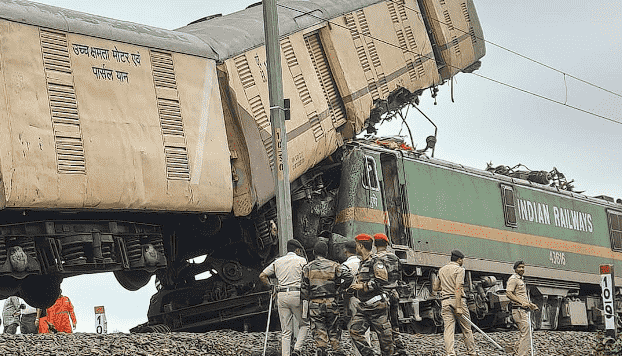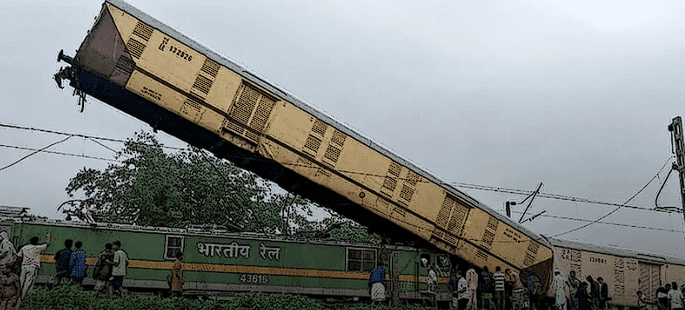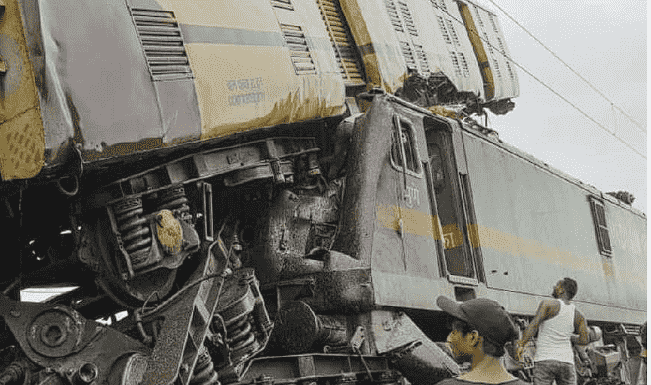


On June 17, 2024, a horrific train accident occurred in West Bengal, which left a scene of devastation. Sealdah-bound Kanchenjunga Express collided with a goods train near Rangpani station, about 7 km from New Jalpaiguri. At least 15 people died and around 60 others were injured in the incident.
Cause of the Collision
Initial reports suggested possible signal disregard by the goods train driver. Railway Board Chairperson Jaya Verma Sinha confirmed this and said that the goods train did not follow the signal, due to which it collided with the Kanchenjunga Express going from Agartala to Sealdah.
Impact and Rescue Efforts
Due to the intensity of the collision, the last three coaches of Kanchenjunga Express derailed. Rescue operations began immediately, with emergency personnel arriving at the scene to rescue the injured and help those trapped in the damaged vehicles.
Official Response and Investigation
Following the accident, Indian Prime Minister Narendra Modi expressed his condolences to the families of the deceased and announced an ex-gratia payment of Rs. 2 lakh each from the Prime Minister’s National Relief Fund (PMNRF). The injured will get Rs 50,000 each. Railway Minister Ashwini Vaishnav also arrived to assess the situation and monitor relief efforts visited the accident site. An investigation into the cause of the accident has been launched to determine the exact sequence of events and identify any possible lapses in safety protocols. [Kanchenjunga Express]
Outpouring of Support
The news of the accident sent a wave of mourning across the country. Social media platforms were filled with messages of grief and support for the victims and their families. Many netizens demanded a thorough investigation and strict safety measures to prevent such tragedies in the future.
Lingering Questions and Safety Concerns
This tragic incident raises concerns about railway safety in India. While the investigation is ongoing, questions remain about the effectiveness of existing security protocols and the need for further improvements.
Signal Systems and Enforcement:
The reported cause of the accident, disregarding a signal, underscores the importance of reliable signal systems and strict enforcement of adherence by train operators.
Upgrading Infrastructure:
Regular maintenance and upgrades to railway infrastructure, including tracks and signaling systems, are crucial to prevent accidents.
Emergency Response Preparedness:
Swift and efficient response in the aftermath of accidents minimizes casualties and suffering. Ensuring well-equipped and well-coordinated emergency response teams is essential.
Moving Forward
The Kanchanjunga Express tragedy serves as a stark reminder of the importance of prioritizing safety in railway operations. A multi-pronged approach, including robust infrastructure, advanced signaling systems, stringent enforcement of safety regulations, and well-prepared emergency response teams, is necessary to prevent such accidents from occurring again. This incident demands a thorough investigation, decisive action to address lapses, and a commitment to upholding the highest safety standards to ensure passenger well-being on Indian railways.
Pingback: Kanchenjunga Express leh Goods Train insu thu thar ber
My heartbeat stopped when I saw this picture. Nothing is safe in this world ☹️